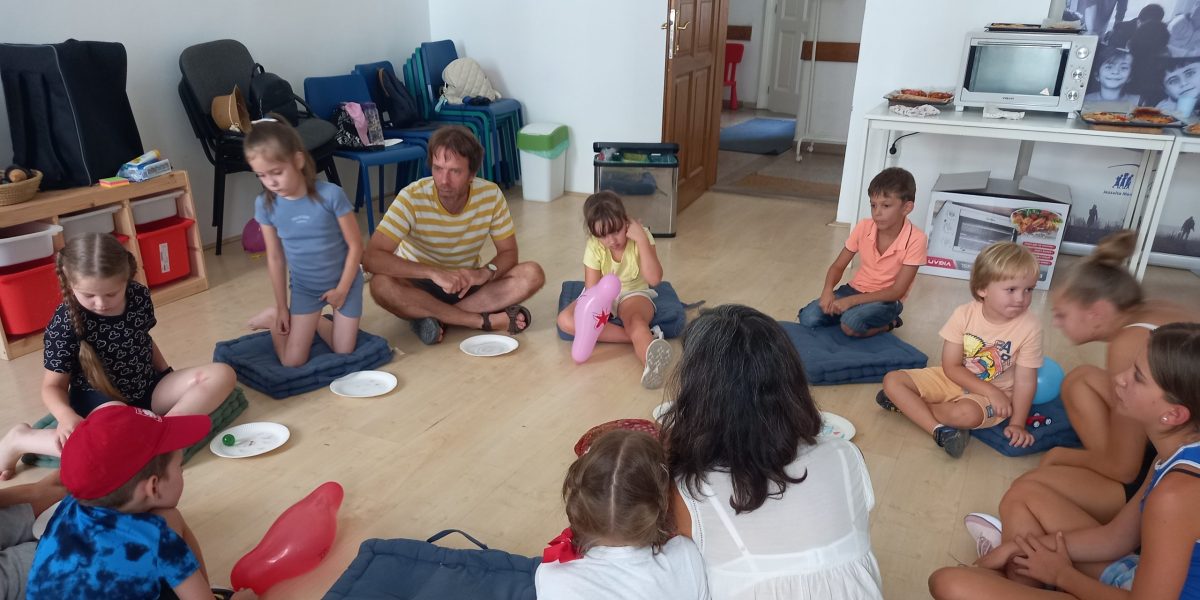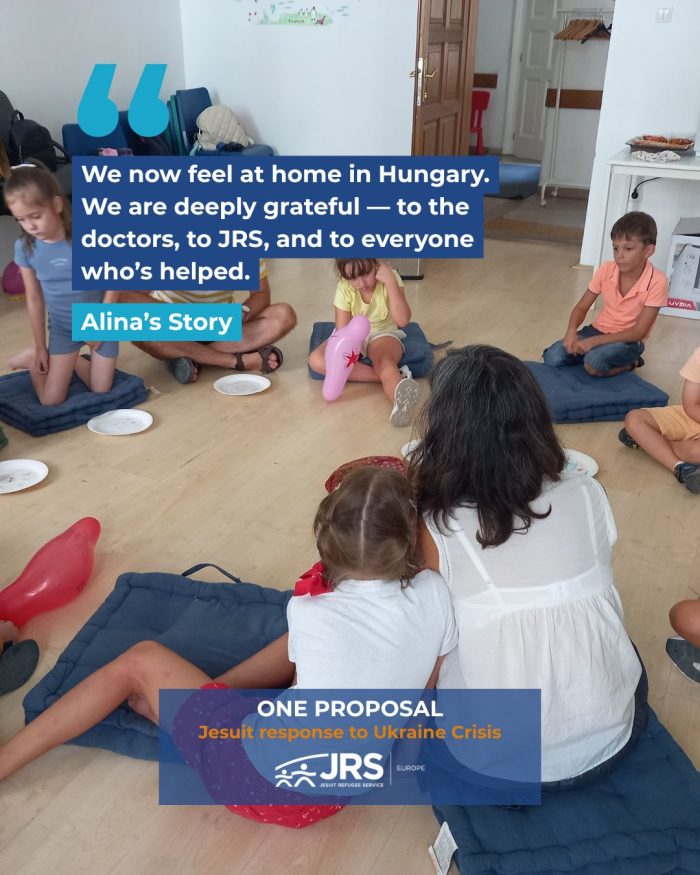Alina: “We now feel at home in Hungary. We are deeply grateful, to the doctors, to JRS, and to everyone who’s helped.”
05 August 2025

Displacement experience
We are from Transcarpathia, where we lived with my parents before the war. My husband sold fruit and vegetables, and our older son had just started school. I had worked in a factory before my second son, Pavlo, was born. At seven months old, Pavlo was diagnosed with West syndrome after a febrile seizure. His condition was severe — long, convulsive seizures every day, requiring constant care.
In early March 2022, the situation became overwhelming. Pavlo was in terrible condition; doctors at home said he had only days to live and sent us home. But we refused to give up. Amid war and uncertainty, we made the difficult decision to seek medical help abroad. We arrived in Hungary on March 16, 2022, by ambulance. Even then, we didn’t know if Pavlo would survive the journey. The windows were darkened, and I remember clutching my son, praying the whole way. Everything was unknown — the country, the language, the system. But we had to try. Our priority was giving Pavlo a chance to live.
Encounter with JRS
For months after we arrived, we had no support. We didn’t speak the language, and I felt lost navigating the healthcare system alone. We moved from one hospital to another — Pavlo had surgeries, then rehabilitation. It wasn’t until the fall of 2022 that we met someone from JRS Hungary at the hospital. That meeting changed everything.
Through JRS, we received food vouchers and help buying Pavlo’s medications. But it wasn’t just financial aid. They offered emotional support, a kind presence, and access to programs where I could talk, learn Hungarian, and feel part of something again. For the first time since leaving home, I didn’t feel alone. I felt heard, respected, and supported.
Integration and future
These past years have revolved around caregiving. Pavlo has come a long way — from barely moving to now sitting up with support, smiling, grasping toys, and eating mashed food. His seizures are shorter and easier to manage. We go to the hospital twice a week, and he attends a daytime development center we found with JRS’s help.
Our older son goes to school and loves Budapest. I take him to and from school, and I’ve also learned Hungarian well enough to manage daily life. My husband works in construction and is starting to get by in the language too.
We now feel at home in Hungary. We are deeply grateful — to the doctors, to JRS, and to everyone who’s helped. In the short term, we hope Pavlo will develop enough for me to leave him at day care a few hours a day. In the long run, we dream of him gaining more independence. And when the time is right, I’d love to go back to work, even part-time — not just for money, but for myself. For our future.
JRS is working together with the Xavier Network, the Society of Jesus in Europe, local civil society, and NGOs in a coordinated Jesuit response. Together we help thousands of people like Alina. You can read more about The One Proposal at: jrseurope.org/en/project/the-one-proposal/.

